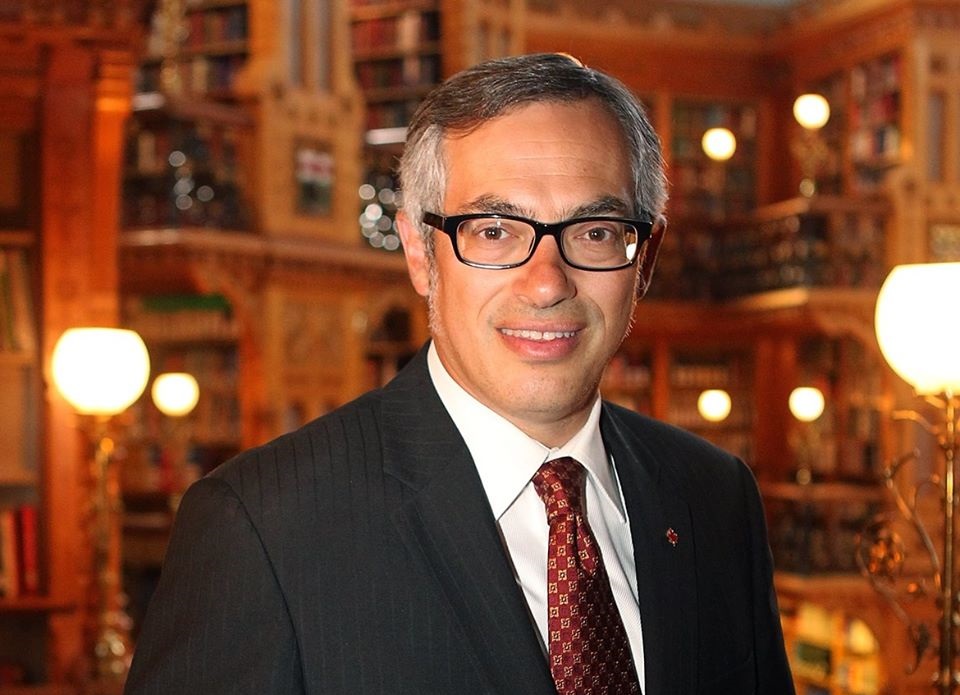MP Tony Clement says despite billions in spending, the federal budget doesn’t do much of anything to address the cost of living.
The Liberals unveiled their election year budget yesterday. It features a $19.8 billion deficit, $200 million higher than was anticipated.
This marks the fourth year in a row Prime Minister Justin Trudeau’s government has tabled a deficit budget, despite campaign promises back in 2015 to have the books balanced by its fourth year in power.
That’s bad news for the people living in the Parry Sound-Muskoka riding, says Clement.
“They’re going to be paying for it. It’s other people’s money, it’s the money of the voters, it’s the money of people, and to have a deficit now projected to be almost $20 billion when they had promised to make it zero dollars is a huge breaking of a promise.”
Canada’s net debt has reached an all-time high of $705 billion, which works out to over $50,000 per Canadian family.
“This is not sustainable,” observed Clement, “the worst part of the news is you’re not even getting value for the money you’re not even getting something in return. They’ve sprayed billions of dollars over dozens and dozens of different projects and none of them are going to make a difference in peoples’ lives.”
One of the new programs introduced is a first-time homeowner’s shared-equity mortgage program worth $1.25 billion over three years. It would see the Canada Mortgage and Housing Corporation kick in up to 10 per cent of the purchase price of a home in the form of a nearly interest free loan.
Clement, while recognizing that housing is a huge issue in Parry Sound-Muskoka, believes this plan comes up short.
“The problem is, you still have to save up for your down payment. That doesn’t go away. When taxes are higher, when the cost of living is higher, when affordability is an issue, the problem is most people can’t get to the point where they can put the down payment down. So they’ve created a program saying ‘as long as you’ve got a down payment we’ll help you with the down payment,’ but most people don’t have the down payment, so it’s really not going to be helpful to most people.”
Another item announced in the budget aimed at reducing the cost of living for Canadians is the creation of a Canadian Drug Agency. It’s going to cost $35 million over four years. This, however, is not a national pharmacare program, but rather the first steps in what could become such a program.
Again, Clement doesn’t believe this is good enough.
“This is a promise they made back in election 2015, but the fact of the matter is, nothing is being done. They’ve put money in the budget for a new bureaucracy, but there’s actually nothing being rolled out to make pharmaceuticals more affordable for people who can’t afford it. Again, it’s a lot of talk, not a lot of action.”
The Canadian Drug Agency wouldn’t start working until the 2022-23 fiscal year.
Clement is mostly positive, however, about the plan outlined in the budget to lower Canada Student Loans interest rates to prime and make them interest-free for six months after graduation.
“That’s a good plan, and I don’t have any problem with that. The issue though is general affordability, and for students, for people just starting out in their academic life it’s still going to be much more unaffordable to pay your bills. That’s going to be helpful to some students, but the problem is all their other costs are going up.”
Overall, Clement believes the Liberals missed the mark by not focusing on a few big issues like housing affordability and skills training.
“The actual dollars available for skills training (in this budget) is $250, which is a miserable amount of money that’s not going to help anybody retrain or get different skills in a rapidly changing workplace. What I think should have been done is focus on those issues. Do something huge. Instead the billions of dollars are being sprayed over a wide net, and so if you look at any individual program it comes up short.
“I think they would have done a lot better if they had focused in on two or three huge issues and been transformative on those, but we haven’t seen that vision in this budget at all.”
Infrastructure is yet another area where Clement says the 2019 budget doesn’t do enough, in the face of a massive, national infrastructure deficit. The Federation of Canadian Municipalities recently estimated that gap has grown to $123 billion.
“Certainly locally we have a huge shortfall. You just have to drive around Muskoka or Parry Sound when you’re trying to avoid the potholes to realize we’ve still got some infrastructure issues. But the fact of the matter is there have been promises for three years from the Liberals that they were going to have a deficit to solve the infrastructure issue, so we’ve had the deficits, but they haven’t relayed the money to the province or the municipalities to solve the issue.”
Instead, Clement says the Liberals have now put local governments in a tight spot.
“What they did in this budget was said ‘okay, we haven’t spent these billions of dollars over the last three years, so we’re going to give it to you right now.’ But, right now means they have to spend it within the next week, because the year-end is March 31st for the federal government. That’s completely nonsensical. No one is going to be ready to spend billions of dollars in the next seven days. And if they do spent it I guarantee you it won’t be spent very well.
“Not very forward thinking, wasting money, not solving the problem, that’s what we’re seeing with this budget.”
Clement concludes this is an election-year budget that he believes is just looking to “buy votes.”
“The last time we saw this was Kathleen Wynne. She had an election budget where she was trying to buy votes with other people’s money, with the voters’ money and people saw through that. I talked to many people in Muskoka and Parry Sound who realized that that pre-election budget of Kathleen Wynne was just a smoke screen. I think that people are going to come to the same conclusion about Mr. Trudeau’s budget too.”





